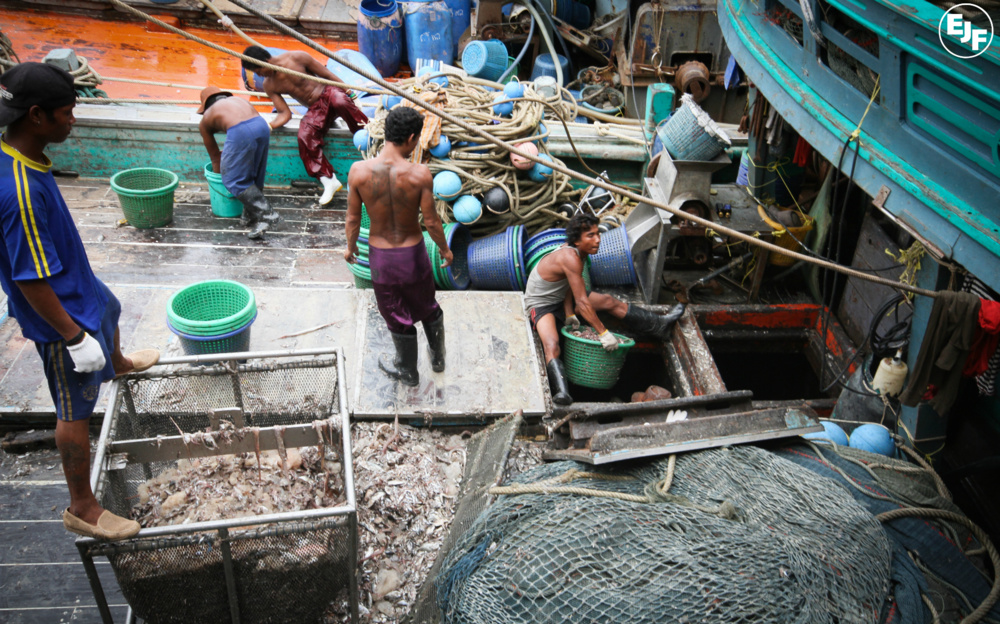
EJF investigation reveals human rights abuses in Thailand's fishing industry
In Sold to the Sea, EJF exposes severe human rights abuses associated with human trafficking in Thailand's fishing industry and documents the testimonies of Burmese workers, as young as 16, who were forced onto fishing vessels for many months and subjected to arduous, often violent, working conditions without pay.
The report details testimonies of crew murdered at sea, and on shore, and the shocking figure from a 2009 survey by the United Nations Inter-Agency Project on Human Trafficking (UNIAP) that found 59% of interviewed migrants trafficked about Thai fishing boats reported witnessing the murder of a fellow worker.
Testimonies from the victims EJF interviewed:
“They said I could not do my job very well and I was beaten. We dare not talk back or make any complaints. When our boat went back to shore, I was sold to another boat and I was beaten on that next boat as well.”
“After 3 nights we were told that one of us would be executed. We had to draw straws to decide who would be killed. If the police had come one hour later we would have been killed already.”
Sold to the Sea reports that authorities tasked with ensuring that workers are employed legally, and are not mistreated, have proved unable or unwilling to do so. EJF has documented that human trafficking onto fishing vessels has, on occasion, been facilitated by corruption and there is an unwillingness to prosecute the individuals and companies that procure trafficked persons.
EJF evidence shows a close relationship between human trafficking and IUU fishing, with migrants reporting their boats regularly operating illegally and fleeing patrol boats in foreign waters. This is a symptom of a wider lack of regulation and transparency in the Thai fishing industry, with ineffective enforcement by Navy patrols and little information on the activities and locations of fishing vessels.
EJF found that monitoring of the activities of the Thai fishing fleet is negligible and consequently new management and enforcement mechanisms must be employed.
In Sold to the Sea: Human Trafficking in Thailand’s Fishing Industry, EJF reveals evidence that raises serious questions about Thailand’s progress in combating and preventing human trafficking. EJF calls on all stakeholders to work together to prevent human trafficking in Thai seafood production and bring an end to this devastating practice. The report offers specific recommendations for action.
“EJF has uncovered a huge number of pirate fishing operators and criminal businesses actively using forced and trafficked workers on their boats as a way to maximise their profits. The victims of this, often among the most vulnerable and desperate, are subject to horrific abuse, denied basic freedoms, forced to work punishing hours, savagely beaten and even murdered. There are no excuses for this modern day slavery and governments and business must come together to stamp it out.
All too often the fish that is caught by these vessels, crewed by trafficked workers, is used to supply fish to the shrimp industry and provide for fish markets in Europe. We are eating product produced by slaves and this must be stopped.
It is absolutely clear that the Thai authorities have long known about the trafficking on to fishing vessels (and into shrimp factories) and that the enforcement agencies supposed to prevent this and protect victims either turn a blind eye, or have even colluded with the traffickers and businesses that benefit.” Steve Trent, Executive Director of EJF
SIGN UP FOR OUR EMAILS AND STAY UP TO DATE WITH EJF